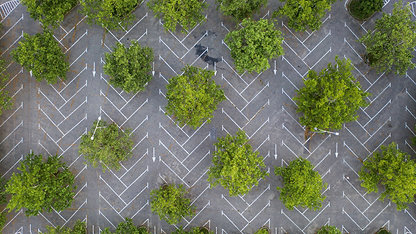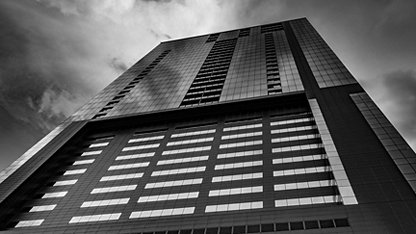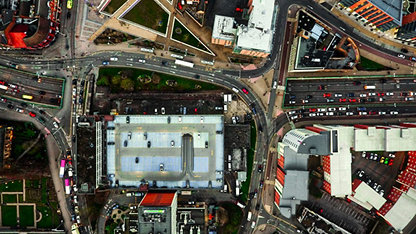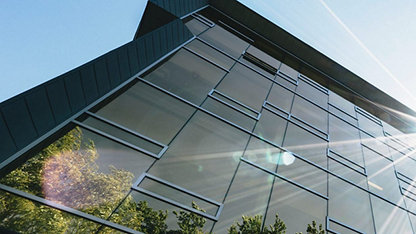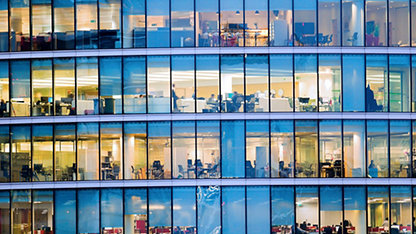Welcome to our weekly update, where we explore the latest advancements in AI, data and technology shaping the built and natural environment. This week, we will look at developments across various sectors that aim to revolutionise our approach to sustainability and efficiency. From innovative recycling processes in cement production and green transformations in urban spaces to strategic acquisitions in property management and regulatory steps in AI governance, these stories highlight advancements across the industry.
Electric arc furnaces could transform cement production
Buildings are the largest emitter of carbon emissions, specifically 39% of global emissions, of which buildings and construction contribute 11%. Concrete and steel are the most widely used construction material and they are notorious for their contributions to global CO2 emissions. However, technology from Cambridge University may offer a solution. Their innovative process involves recycling old concrete in electric arc furnaces- typically used for steel processing. By substituting lime flux with recycled cement paste, the method not only purifies iron but also generates "reactivated cement" as a by-product. This reactivated cement, when powered by renewable energy sources, holds the promise of producing entirely carbon-neutral cement.
The implications of this research extend beyond environmental benefits; it has the potential to revolutionise both concrete and steel industries by significantly reducing emissions without incurring substantial production costs. Moreover, the scalability of this method, demonstrated through successful trials at the Materials Processing Institute, indicates a promising pathway towards zero-emission cement production. This breakthrough technology, filed for patenting, signifies a crucial step forward in the global quest for net-zero emissions and sustainable construction practices.
Click here to read the full article
Restoring life to concrete jungles
In a world rapidly shifting towards urbanisation, with an estimated 68% of the global population projected to live in cities by 2050, green solutions may be a necessity. Expected to be completed by the end of June, passengers of Katowice Airport will notice its green transformation. LIFE Archiclima, is greening concrete spaces surrounding Poland's Katowice Airport and other public buildings to enhance climate resilience.
Through this five-year project, 32 facilities will be fortified against extreme weather, such as torrential rains, floods, high winds, and droughts. Nature based solutions, such as green walls, can be used to mitigate challenges such as the urban heat island effects and reduce flood risks.
“Future passengers out of Katowice Airport will see its green transformation at the end of June 2024. The works include raingardens, a green wall from vines, pergolas, native tall greenery, meadows with native vegetation and the implementation of an ‘Archiclima Standard’ – a metric to maintain green areas and restore biodiversity on site.”
Click here to read the full article
Proptech Labs acquires reHeroes to enhance AI-driven PM solutions
Proptech Labs, offering AI-driven technology solutions for property management, has recently expanded its capabilities through the acquisition of reHeroes. This move builds upon Proptech Labs' previous acquisitions, including Maintenance Manager and Inspection Manager, and marks a significant milestone in its journey towards enhancing operational efficiency and user experience.
With the addition of reHeroes' platform, Proptech Labs gains access to over 130,000 properties, 415,000 users, and 3,200 property managers. The integration of reHeroes' platform will enable Proptech Labs to enhance its technological offering, integrating AI capabilities across its suite of property management solutions.
This strategic integration will focus on enhancing data analytics, automating routine tasks, and improving tenant services through advanced AI-driven technologies, setting new standards for the industry and reaffirming Proptech Labs' position as a leader in the AI-driven property management space.
Click here to read the full article
The EU launches an office tasked with overseeing the implementation of AI act
AI is rapidly advancing, therefore the need for robust governance is critical. The European Union has recently launched a dedicated office tasked with overseeing the implementation of its AI Act. The AI Act, regarded as the world's first comprehensive AI law, adopts a risk-based approach to regulate the use of artificial intelligence across various sectors. This landmark legislation aims to ensure the safe and ethical deployment of AI technologies, addressing concerns such as transparency, accountability, and discrimination. By establishing different rules for different risk levels, the AI Act sets obligations for providers and users, with a focus on protecting individuals' rights and safety. This initiative not only demonstrates the EU's commitment to fostering innovation but also underscores its dedication to mitigating potential risks associated with AI adoption.
As the AI Act becomes fully applicable, it is expected to have a significant impact on the built and natural environment. By promoting transparency, accountability, and responsible AI use, the legislation will contribute to building resilient and sustainable communities, aligning with the EU's broader objectives of promoting economic prosperity and protecting the environment.



